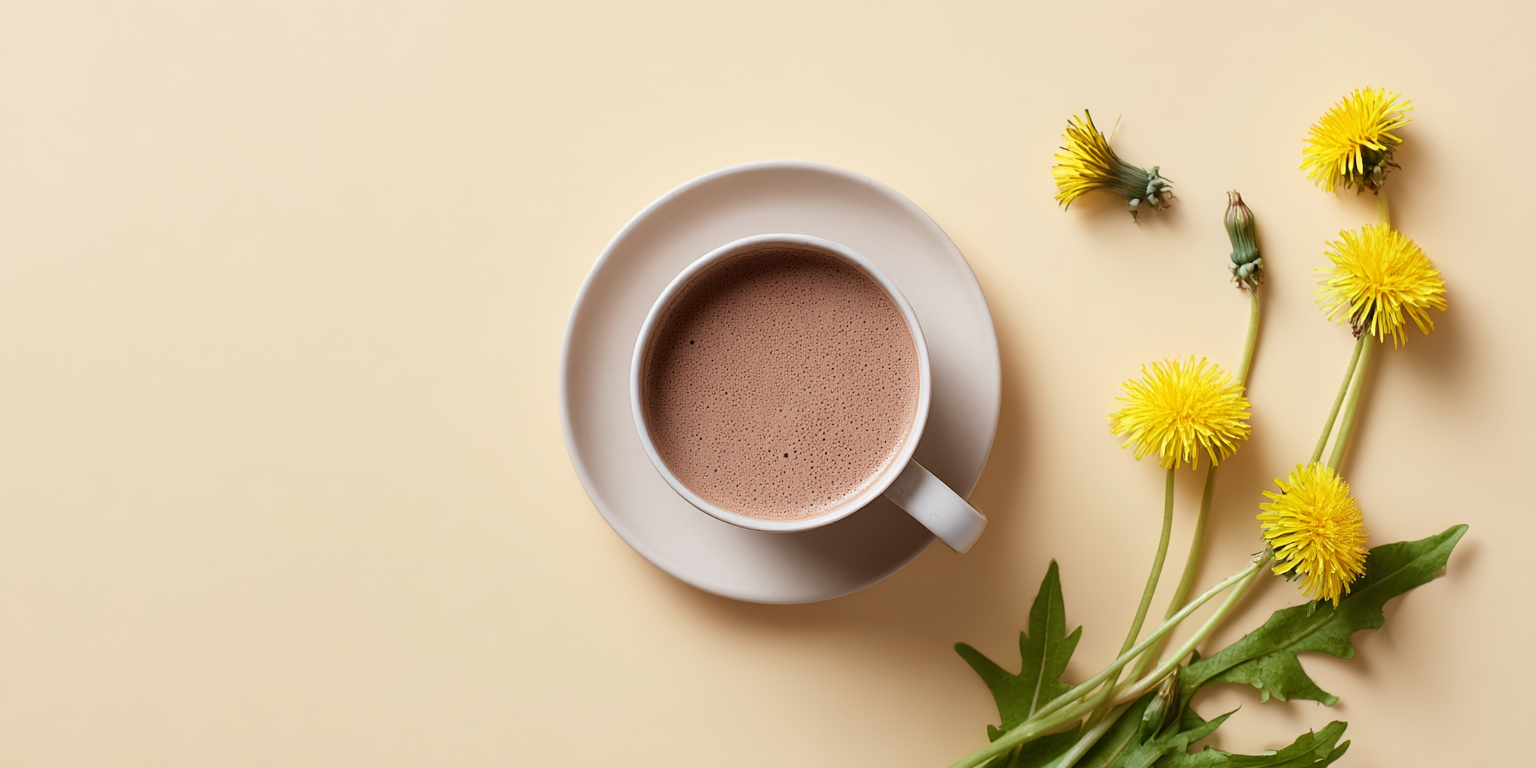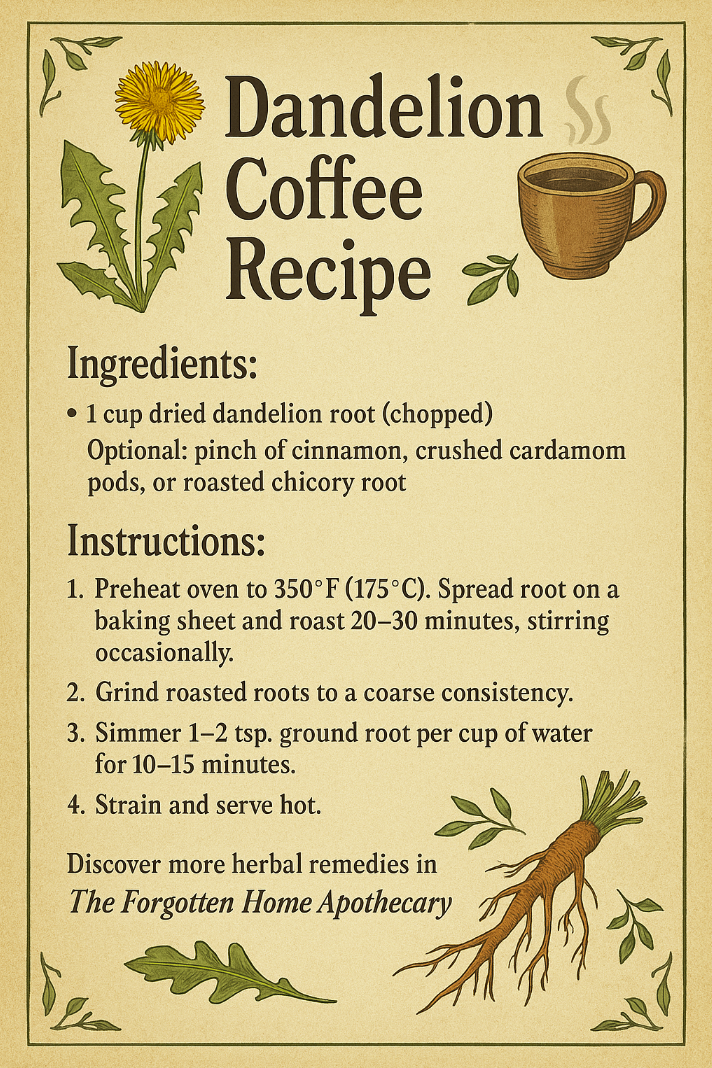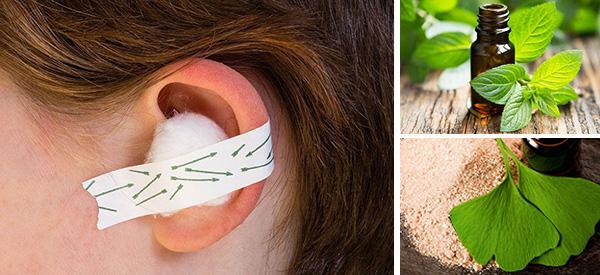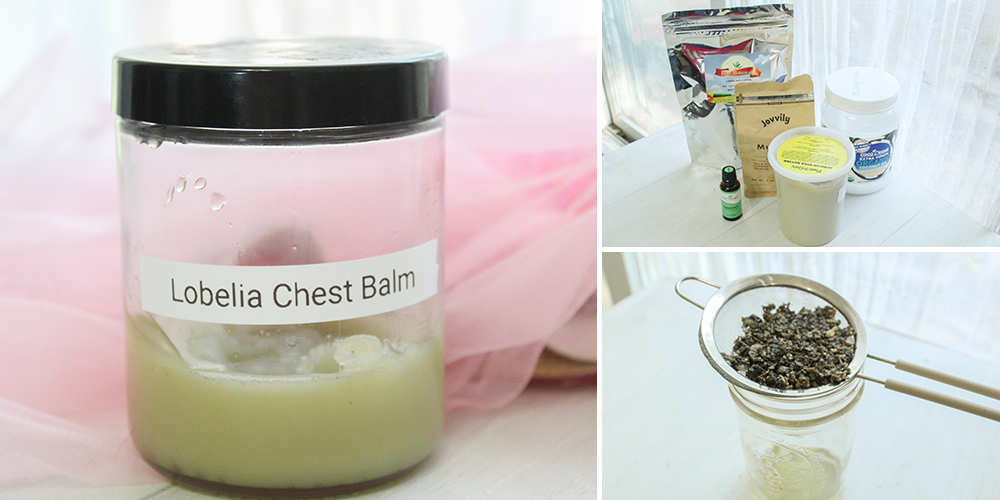
Dandelion Coffee – The Forgotten Brew That Heals From the Ground Up
Dandelions. Most people see them as weeds—those bright yellow flowers popping up in driveways, gardens, and cracks in the sidewalk. But to herbalists and those who cherish natural healing, the humble dandelion is a treasure trove of wellness. In fact, one of the most nourishing and overlooked uses for this plant is something you might not expect: dandelion coffee.
Rich, roasty, caffeine-free, and full of health benefits, dandelion coffee is not only a great coffee substitute—it’s also an age-old remedy that supports digestion, liver health, and detoxification. Our ancestors knew the power of this plant, and now, as we return to the roots of herbal medicine, dandelion coffee is making a well-deserved comeback. In fact, there are several reasons why you may want to pick dandelions. Making coffee is just one of them.
Whether you’re looking to ditch caffeine, soothe your body, or just explore forgotten herbal traditions, dandelion coffee deserves a place in your cup. In this article, we’ll dive deep into what it is, why it’s good for you, how to make it taste amazing, and what our ancestors knew that modern science is finally starting to understand.
What Is Dandelion Coffee?
Despite its name, dandelion coffee doesn’t contain any coffee at all. It’s made from the roasted roots of the dandelion plant (Taraxacum officinale), which have a surprisingly similar taste to traditional coffee: earthy, slightly bitter, and wonderfully aromatic.
Historically, people used roasted dandelion root as a beverage long before modern coffee became widespread. In times of war and scarcity, it was often used as a substitute. But even when coffee was available, many preferred dandelion root for its health benefits and grounding, nourishing properties.
Unlike coffee, which can be acidic and overstimulating for some, dandelion coffee is naturally caffeine-free and gentle on the stomach. It’s one of the few warm beverages that feels indulgent and medicinal at the same time.
The Health Benefits of Dandelion Coffee
Herbalists have long used dandelion root for its powerful effect on the liver, kidneys, and digestive system. Today, scientific studies are beginning to validate what folk medicine has known for centuries. Here’s what makes this plant so special:
1. Supports Liver Function
Dandelion root is considered a natural liver tonic. It helps increase bile production, which supports detoxification and healthy digestion. A well-functioning liver is essential for energy, clear skin, hormonal balance, and overall vitality.
2. Aids Digestion
By stimulating the flow of bile and digestive enzymes, dandelion coffee can help relieve bloating, indigestion, and sluggish bowels. Drinking a cup after meals can encourage smoother digestion.
3. Rich in Prebiotics
Dandelion root contains inulin, a natural prebiotic fiber that helps feed the good bacteria in your gut. This supports a healthy microbiome and stronger immune system.
4. Diuretic and Detoxifying
Dandelion is a gentle diuretic, meaning it encourages the kidneys to flush out excess water and toxins. Unlike pharmaceutical diuretics, it also contains potassium, which helps prevent nutrient loss.
5. Balances Blood Sugar
Some studies suggest that dandelion root may help regulate blood sugar levels by improving insulin sensitivity and reducing inflammation.
All of this comes with zero caffeine, no artificial ingredients, and no chemicals—just what the earth provides naturally.
How to Harvest and Prepare Dandelion Root
If you’re lucky enough to live in an area where dandelions grow wild (and pesticide-free), you can easily harvest your own roots. Fall is the best time to dig them up because that’s when the plant stores its energy underground, making the roots more potent.
Here’s how to do it safely:
Choose a clean area. Avoid roadsides or areas sprayed with herbicides.
Use a digging fork or garden trowel to gently loosen the soil around the root and pull the plant out completely.
Wash the roots thoroughly under running water to remove dirt and grit.
Chop the roots into small pieces and let them dry for several days in a warm, well-ventilated space.
Once dry, it’s time to roast and brew.
Recipe: How to Make Delicious Dandelion Coffee
 This recipe brings out the best in dandelion root—deep flavor, satisfying aroma, and healing warmth in every cup.
This recipe brings out the best in dandelion root—deep flavor, satisfying aroma, and healing warmth in every cup.
Ingredients:
1 cup dried dandelion root (chopped)
Optional: a pinch of cinnamon, a few crushed cardamom pods, or roasted chicory root (for added flavor)
Instructions:
Roast the roots. Preheat your oven to 350°F (175°C). Spread the dried root pieces on a baking sheet and roast for 20–30 minutes, stirring occasionally. The roots should turn a dark brown color and release a rich, nutty aroma.
Grind the roots. Once cooled, grind the roasted root in a coffee grinder or mortar and pestle until it reaches a coarse coffee-like consistency.
Brew the coffee. Use 1–2 teaspoons of ground dandelion root per cup of water. Simmer in a small saucepan for 10–15 minutes. Strain and serve hot.
Optional Add-ins:
A splash of milk or dairy-free creamer
Raw honey or maple syrup for sweetness
A touch of vanilla or cinnamon
The result? A cup that looks like coffee, tastes like coffee, but feels like a soothing herbal elixir.
You want the recipe in a simple format? Just save the image below and you can print it:
 Want to Learn More About Herbal Remedies Like This?
Want to Learn More About Herbal Remedies Like This?
Making your own dandelion coffee is just one of many ways to reconnect with the healing plants that grow all around us. For centuries, our ancestors turned to the natural world—not pharmacies—for everything from pain relief to energy, immune support, wound healing, and digestion. That wisdom still exists. And you can reclaim it.
If you’re curious about creating your own home remedies from common herbs, The Forgotten Home Apothecary is an incredible resource. This book is like having your grandmother’s herb journal, your local healer’s notes, and your own medicine cabinet all in one place.
Inside, you’ll learn how to:
Make salves, tinctures, and herbal teas for real results
Identify the most powerful healing plants in your backyard
Use ancient herbal recipes to treat modern problems safely and naturally
Click here to explore The Forgotten Home Apothecary and bring herbal medicine back into your home.
Whether you’re just starting your journey with herbs or you’re already growing your own medicinal garden, this book is a trusted companion—full of timeless remedies our ancestors swore by and we desperately need to remember.
Final Thoughts
Dandelion coffee is more than just a caffeine-free drink. It’s a ritual. A link to the land. A moment of healing in your day. When you sip it, you’re not just nourishing your body—you’re tapping into centuries of herbal wisdom.
So the next time you see a dandelion sprouting up in your yard, don’t pull it in frustration. Pause. Give thanks. And consider digging up the root, roasting it, and letting it warm you from the inside out.
Because sometimes, the weeds we’re taught to hate are actually the healers we need most.
DIY Medicinal Pickled Dandelion
How To Keep Mosquitoes Away With Cattails (Video)

 Want to Learn More About Herbal Remedies Like This?
Want to Learn More About Herbal Remedies Like This?


